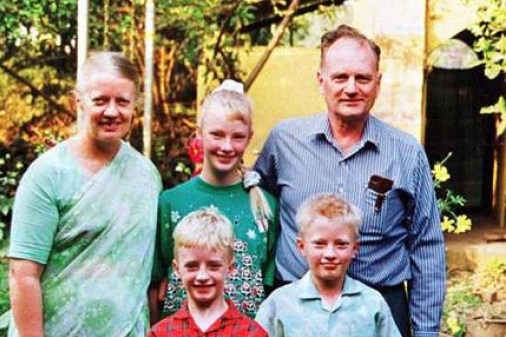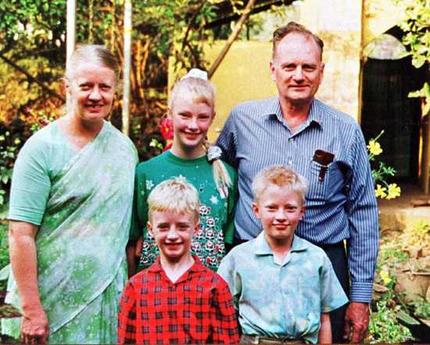Convicted in 1999 Missionary Murder, Mahendra Hembram Released Amid Controversy

The release of Mahendra Hembram, convicted for his role in the brutal 1999 murder of Australian missionary Graham Staines and his two sons, has sparked a heated debate. After spending 25 years behind bars, Hembram was freed from Keonjhar jail on April 16 due to “good behaviour.”
Emerging from prison, Hembram was met with flower garlands and chants of “Jai Shri Ram,” a reception that has drawn sharp criticism from human rights advocates and Christian leaders. John Dayal from the United Christian Forum described the celebration as “obscene” and an exploitation of the justice system for political ends.
Ajay Singh, a Catholic priest and human rights activist in Odisha, expressed his shock to Morning Star News, stating, “The way Hembram was welcomed with garlands and taken on a celebration procession by a crowd shouting Hindu slogans was a shocking sight for anybody believing in peace and tranquillity of a society.”
Despite Hembram’s claims of innocence after his release, 2002 court records indicate that he had previously confessed to being solely responsible for the killings. He told reporters, “I spent 25 years in jail after being falsely implicated in an incident related to religious conversion. Today, I have been released.”
Graham Staines, aged 58, along with his sons Philip, 10, and Timothy, 6, were horrifically killed when their vehicle was set on fire in Manoharpur, Odisha, on January 22, 1999. Staines had been serving leprosy patients in Baripada, India, since 1965.
Eyewitnesses and police reports identified Hembram and another convict, Dara Singh, as leaders of the mob that attacked the missionary, accusing him of converting tribal communities to Christianity. Attempts by Staines and his sons to escape were blocked by the mob wielding wooden poles.
The murder was widely condemned, with then-President KR Narayanan denouncing it as part of “the world’s inventory of black deeds.”
Following Hembram’s arrest in December 1999, a special Central Bureau of Investigation (CBI) court sentenced him and 12 others to life imprisonment on September 22, 2003. Dara Singh was initially given a death sentence, which was later reduced to life imprisonment by the Orissa High Court in 2005, a decision upheld by the Supreme Court in 2011. Eleven others were acquitted on appeal.
The Supreme Court faced backlash in 2011 for suggesting that the murder was meant to “teach a lesson to Graham Staines about his religious activities.” The court later revised its statement, emphasizing that “there is no justification for interfering in someone’s religious beliefs by any means.”
Hembram’s release aligns with Odisha’s 2022 remission policy, allowing life convicts with over 20 years served to be freed in serious cases. Jail authorities confirmed that Hembram was one of 30 murder convicts released on April 16.
The reception of Hembram has raised concerns among human rights groups, particularly as support grows for the release of Dara Singh, who remains incarcerated. Dara Singh’s plea for remission is currently under review, with a decision expected in early May following a Supreme Court directive.
Christian leaders have voiced apprehension over the potential implications. John Dayal commented, “The political clamour for his release too is on the rise.”
Highlighting the severity of the crime, Dara Singh stated, “This is a rarest of the rare crime against humanity, where Staines and his sons were burnt alive in a most barbaric way, and if murderers like Hembram and Dara Singh are released and that release celebrated in this manner, that will send a wrong message to those who indulge in such crimes.”
Advocates argue that Hindu nationalist rhetoric under Prime Minister Narendra Modi has intensified intolerance, emboldening extremists. As the nation awaits the decision on Dara Singh’s plea, questions remain about whether justice will prevail or be swayed by political forces.
This article was originally written by www.christiantoday.com






